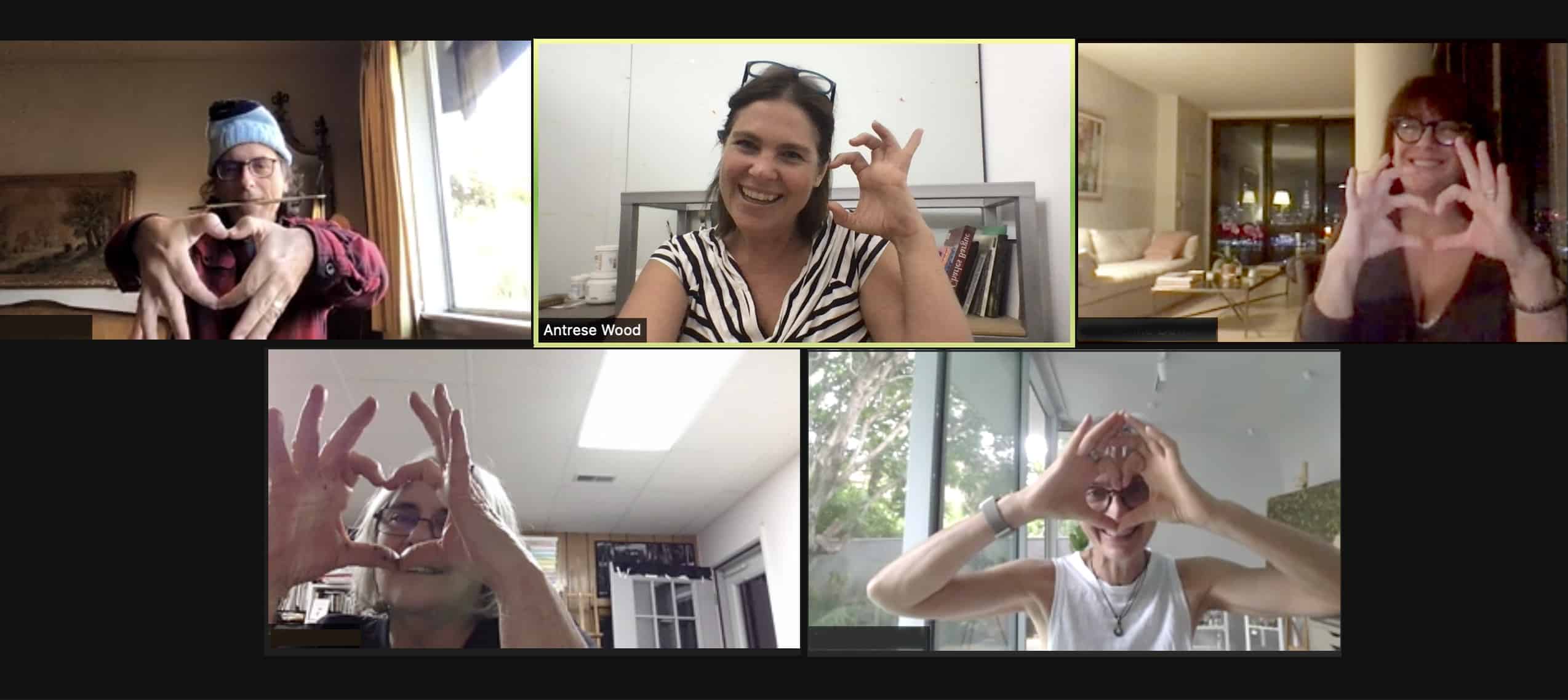What would you say is the greatest tool you have in your studio. Don’t look down the page to see what I think it is… take a moment to answer the question for yourself.
Is it your brushes? The canvas in the corner? The turntable that spins the vinyl you listen to while painting?
Honestly answer, what is the most important thing in your studio?
In this episode, I want to walk you through my discovery that the most important tool I have as an artist is none of those things. The most important tool you have is not even talked about in most art classes. What is it? Keep reading and listen to this episode…
Outline of This Episode
- [0:05] A transformational year for me and the work I’ve been doing with artists
- [1:32] Your brain is the most powerful tool you have in your studio
- [10:25] Your thoughts are the obstacle and that’s good news
- [11:59] My results from making this mental tweak
- [12:44] An example: You can’t figure out what’s wrong with a painting
- [13:30] Another example: I have to make this painting work
- [15:37] Start to be aware of what’s going on in your head
Your brain is the most powerful (and important) tool in your studio
The things that are going on in your mind when you enter your studio are powerfully important. I’m not talking about the latest tension you saw on social media before you opened the studio door (though that qualifies), I’m talking about the beliefs about yourself and your work that you carry into the studio with you.
Those are powerful. Those are what either enable you to do great work (the work you want to do) or do less than you hope for and less than you are capable of doing.
I want you to walk through a few examples in hopes that you can come to a vital understanding: Your thoughts are not reality.
Thoughts are merely how you interpret things
Have you ever wondered how 30 people can witness the same event and each of them will have their own unique perspective of what happened? It’s like there were 30 different versions of the event. How is this possible? It’s because each person interpreted the event differently in their own minds. That illustration helps us understand that our thoughts are not us and that if we can learn to change our thoughts, we can change our ability to do great work.
Up to this point in your artistic career you may have felt any number of things are your “problem,” the thing that’s holding you back.
- Do you believe that your painting skills aren’t good enough to do great work?
- Is it a belief that there are too many things in the way?
- Do you believe that there are way too many artists and not enough galleries?
- Are you uncertain what your style or voice as an artist is?
Any of these might be an issue and issues can be worked on specifically and diligently. But none of those is your real “problem.”
The real problem is WHAT YOU MAKE THOSE THINGS MEAN. Said a different way, the stories you tell yourself ABOUT those things is your problem.
What you think about is what you create
As human beings, we have 60,000 thoughts a day and most of them are stories we are telling ourselves. These stories create emotion and we respond (act or not act) based on that emotion.
Let’s take an example…
You notice someone looking at your art…
- Do you think they see everything wrong with your work?
- Are they just being polite and are not really interested in your painting?
- Are they thinking, “How lovely!”
- Are they another artist who is looking to steal your concepts?
As you watch the person looking at your painting you could assume any of those things or hundreds more things. But those are ALL stories you’re telling yourself — and the feelings the story generates will impact how you act.
Do you see that the story you told yourself created the reality you’re living in? It’s an illustration of how your brain is the most powerful tool in your studio.
I say it that way because you and I can learn to use our brains to change the stories and therefore, change what we believe about ourselves and our work.
GOAL: Go into the studio with a clean, managed mind
So back to the initial point I made. When you go into your studio to paint the state of your mind is vitally important. It’s the tool that will color (no pun intended) every observation you make about your work, every decision you make as you create it, and every response to the things that occur as you work.
We all have a muscle to develop in this area — a mental muscle. When we do, and learn to use our minds to our advantage, the change can be amazing and powerful.
Stick around for the next few episodes. I’ll be covering this more in-depth as we go along.

